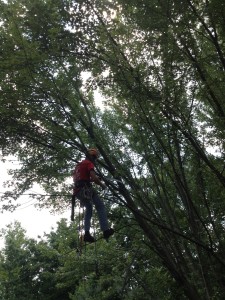These are the 10 most important considerations before hiring home improvement contractors.
We are often asked for recommendations for local contractors for home improvement projects, well and septic service and inspections, termite inspections, landscaping upgrades and maintenance, etc. As experienced real estate agents we feel qualified to provide a list of concerns which should be addressed before selecting a contractor. We have provided this list in order of importance:
(1) Obtain a written estimate. The contractor you select should provide a detailed written estimate which includes the item of repair, cost of repair, and target date of repair.
(2) Agree to a completion date in the contract. Once a contractor starts the job he shouldn’t work other jobs for other clients which will remove workers and slow the work being provided on your project. Nothing is worse than completion dates being ignored because a contractor has received new business and placed your job low on a client priority list. Consider using penalties in a contract for missed completion dates.
(3) Contractors can be fired. Once a contractor agrees to a written contract you should expect the terms of the contract to be honored. After hiring contractors for past projects, we’ve noticed when estimates have been presented lower than competitors (sometimes purposely to secure the job), the contractor selected to do the work will try to renegotiate pricing after work begins, or provide a lower quality of workmanship to help reduce project costs. Don’t allow this to happen. If the scope of work has not changed the contractor should be working in accordance to the written estimate. If this cannot be agreed it’s time to pay for all completed work and find another contractor. This is a trouble sign which should not be ignored.
(4) A written estimate should include time-tables. If your contractor is not routinely on the job when promised this is a serious problem. Professionals do not conduct business in this way and it’s time to consider terminating your agreement, and dismissing your contractor. In order to do this without facing civil actions, the written estimate should have a time-table built into it which breaks the job down into stages, and agreed upon completion dates for each stage of construction. If your contractor is clearly behind and you want him to collect his tools and leave your home a written and agreed time-table will let this action without you breaching the first written agreement. Using a time-table (stage agreement) to financially penalize the contractor when production dates are missed is a real motivator to keep your project a top priority on the project list of your contractor.
(5) Estimates should include a material list. Inspect the materials being used. Your contractor should use the materials listed in the written estimate. It is dishonest for your contractor to use building materials which are cheaper and lesser quality to save money.

We recommend using licensed and bonded industry professionals for all jobs related to the safety and value of your home. We hired Mitchell’s Tree Service to handle technical climbing and tree pruning on our property. We were not disappointed by the workmanship of this licensed and bonded company.
(6) Ask for recommendations. The contractors you interview should give recommendations. You should speak to a past client who has hired the candidates for the same type of job you’re having done at your home. I would ask them about the quality, pricing, and completion times of completed work. If you want an unbiased opinion a real estate agent is the best source for a contractor recommendation.
(7) Reduce the risk of poor workmanship and construction fraud. Never work with a contractor unless they are licensed, bonded, and insured. We prefer to hire contractors with a reputation already established. The biggest mistake in hiring a contractor is selecting them based only on pricing. Just like any other business, experience matters, and it’s worth paying more for a great reputation. Unfinished projects and stolen deposits always seem to involve an unlicensed remodeling specialist recommended by someone who describes them as out of work and needing money. Remember construction fraud in Virginia does not apply to someone who provides any level of work on a service agreement. If someone provides any work related to an agreement he only recourse to recover damages is through a warrant-in-debt process. Just remember, good contractors are never out of work.
(8) The estimate should clearly define work which complies to building codes. The contractor you select should give an estimate which addresses completion of work in a workmanship like manner which complies with all state and local building codes.
(9) Discuss necessary building permits. Additional finished square footage (such as finishing a basement) requires a building permit. Your contractor should aid you with obtaining the proper building permits. In most jurisdictions in Northern Virginia the process of applying for a building permit and having it reviewed and approved is shortened for homeowners compared to contractors. But a good contractor will guide you through this process.
(10) Your contractor and tradesmen should have proper licenses. The Virginia DPOR issues contractor’s licenses based on the amount of experience, and the value of contracts a licensee is allowed to pursue during a one-year period. It’s important to use a contractor with the proper classification (A, B, C) for your project. This will need workers (electricians, plumbers, gas fitter, and HVAC mechanics) employed by the contractor to have DPOR trade licenses. This will protect you through the DPOR complaint process if work is not done to proper standards and conduct.
We could continue this list but these are our main points of consideration. Just like real estate agents, not all contractors are the same. Selecting a home improvement contractor is the most important step in the remodeling process. Click here for information related to selecting a home inspector in Northern Virginia. For further questions on all matters real estate feel free to contact us. Advise is always free.
Related articles
- 10 Questions to Ask Before Hiring a Contractor (doorfly.com)
- No More Contractor Horror Stories, Please! (essentialrealestatetips.wordpress.com)
- How to Hire a Plumbing Contractor for New Home Construction (monthlyjournal.wordpress.com)

